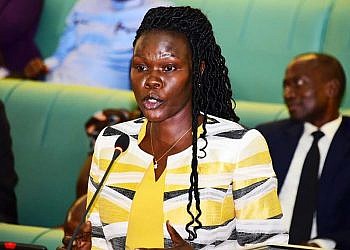During a national stakeholder’s dialogue convened by Cross Cultural Foundation Uganda (CCFU) to address the conservation challenges facing chimpanzees in Uganda, conservationists have called for the prioritizing of the restoration of forest corridors in the Rwenzori and Bunyoro regions.
The discussion highlighted the critical role of these corridors in maintaining the habitat connectivity essential for the survival of chimpanzee populations in Budongo forest.
Barbra Babweteera Mutambi, the Executive Director of CCFU, highlighted the inborn link between culture and wildlife conservation.
She said that Uganda’s society being clan based, culture plays a big role in shaping attitudes and behaviors towards wildlife.
Babwetera emphasized further the importance of integrating cultural perspectives into conservation efforts.
“In Uganda we are clan based, and each clan associates with either animal or a plant. And it all comes along with the taboos, the do’s and don’ts with belief systems and it is well known that in all clans, what you’re taught is, you are entrusted to protect it to ensure its safety.”
Babweteera explained that in unprotected areas, chimpanzees frequently clash with humans due to ongoing deforestation and this conflict arises from the diminishing habitat and resources, particularly food.
“Uganda is home to around 5000 chimpanzees, but they are greatly threatened because of the deforestation that has taken place in various communities. And the threat is even bigger in nonprotected areas. Where Uganda Wildlife is operating in protected areas, the threat is less, we are seeing increased wildlife conflict, and it’s as a result of human beings and the chimpanzees, competing for food competed for a few resources.”
She stressed a need to restore forest corridors, replant and regrow trees in order to have these chimpanzee safe and away from the communities.
“We need to reafforestate in spaces and communities where we have run down these forests. There is need to replant and regrow these trees so that we can have chimpanzees in safe havens away from communities,” she added.
Babweteera highlighted a need to enhance education to the communities especially the young people to learn how to treat these chimpanzee because they are not only Just wild animals but contribute to the country’s GDP through tourism.
She called upon all stakeholders to join in supporting sustainable development and conservation efforts in Uganda.
This dialogue is part is part of CCFU’s “CultureForChimps” project funded by Arcus Great Apes Foundation centered on leveraging cultural practices to foster conservation efforts in Bunyoro and Rwenzori and addressing the complex interplay between human activities and wildlife preservation.
In a speech delivered by George Oweyesigire, the commissioner of the wildlife authority at the Ministry of Tourism, Permanent Secretary Silver Katusiime of the Ministry of Tourism emphasized that the loss of critical habitats not only threaten the survival of chimpanzees but also destabilizes the delicate balance of our shared ecosystems.
Katusiime revealed that the ministry is reviewing the Wildlife Policy in 2014.
She added that the review process has generated a number of views and recommendations that will shape the future of conservation, chimpanzees and their habitats.







































